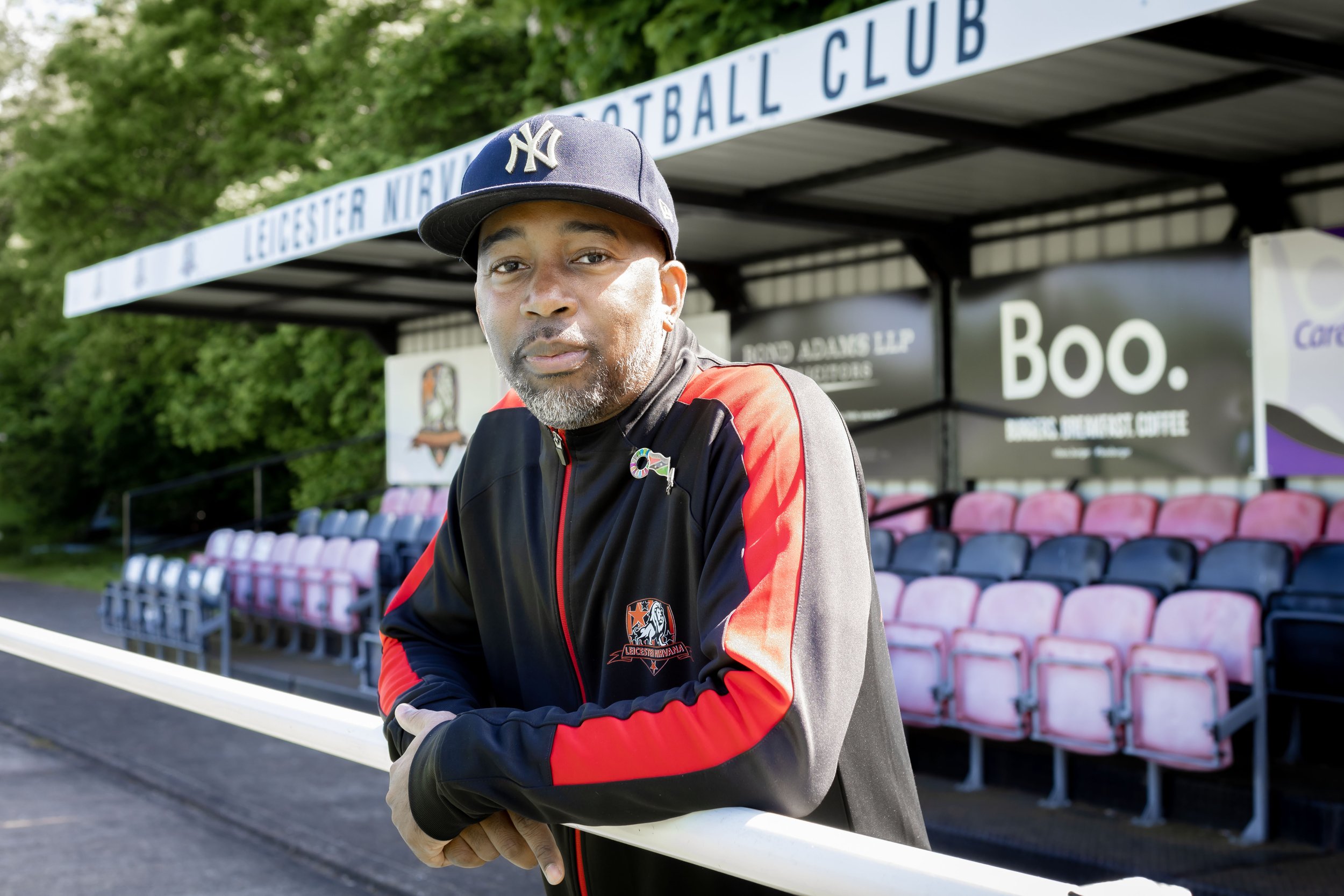Breaking Barriers: A Call for Diversity in Sustainability Conversations.
Ivan Liburd
SDG Champion for Leicester Nirvana
As a black man passionate about sustainability and representing my club, Leicester Nirvana, I've often found myself in rooms where diversity is sorely lacking. Whether it's in meetings or interviews, the absence of ethnic voices is glaringly apparent. It's a reality that needs to change, not just for the sake of diversity itself, but for the richness of perspectives it brings to the table.
In my journey towards sustainability, I've encountered many passionate individuals and engaged in fantastic conversations with people from across the world. I have learnt so much in a small space of time and continue to learn every day. However, I've also felt the weight of responsibility on my shoulders, not only being the sole representative of diversity in these discussions but a sole voice from a community where green grass is a premium and tower blocks are an everyday view. While I'm honored to champion the cause for my club and community, I would also love to see more inclusion across the board.
Leicester Nirvana aspires to lead the way in the race towards sustainability and has been a forerunner on the agenda at a grassroots level for some time. Having the kudos of developing a partnership with De Montfort University and the United Nations, as well as being one of the only grassroots clubs to have measured their scopes 1, 2 and 3 as part of our carbon footprint. We recognise the urgency of the issue and are committed to playing our part in creating a greener future. But to truly effect change, we need genuine diversity in every conversation and decision-making process. Particularly those from an inner city background as these views and life experiences bring a different perspective.
So, how do we improve diversity in sustainability discussions? It starts with intentional efforts to amplify diverse voices and perspectives. Organisations must actively seek out and include individuals from different backgrounds, ensuring that all voices are heard and valued. This means creating inclusive spaces where everyone feels empowered to contribute, regardless of their race, ethnicity, or background. Or even their apparent knowledge on the subject.
There is also a question about how National bodies and large companies carry out their crucial role in supporting grassroots community clubs like Nirvana. This includes providing access to sustainable technology and resources, as well as funding smaller initiatives that promote sustainability at the grassroots level. For example, as a club with hundreds of young people taking part in physical activity each week. Sponsoring filtered water stations and reusable water bottles would not only provide better access, but would mean our club could reduce the sales of plastic water bottles, in return for reusable ones. Which inevitably supports a small financial profit but more importantly, a healthier and more sustainable outcome.
It's not just about financial support; it's about fostering a culture of collaboration and shared responsibility towards building a more sustainable future.
One major barrier to sustainability is the cost associated with it. Sustainable clothing, for example, often comes with a higher price tag, making it inaccessible for many grassroots clubs. This is where companies need to step up and make sustainable options more affordable and accessible. By lowering the barrier to entry, we can ensure that everyone has the opportunity to contribute to a greener future, regardless of their financial means.
But beyond the financial aspect, there's also a need to address the systemic inequalities that exist within our communities. Inner-city communities, like the one Leicester Nirvana serves, face unique challenges that often go unheard in larger sustainability conversations. It's essential that we bridge this gap and ensure that the voices of marginalized communities are central to the sustainability agenda. The United Nations Sustainable Development Goals are a holistic approach to addressing the root causes of poverty, inequalities and subsequently, sustainability.
Diversity is not just a buzzword—it's a fundamental principle that drives innovation and progress. As we strive towards a more sustainable future, we must prioritise inclusivity and representation at every level. By breaking down barriers and amplifying diverse voices, we can build a more equitable and resilient world for generations to come. It's time for change, and Leicester Nirvana is ready to lead the way.



